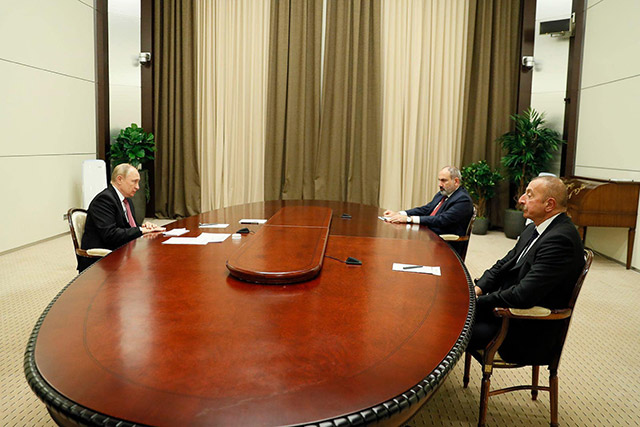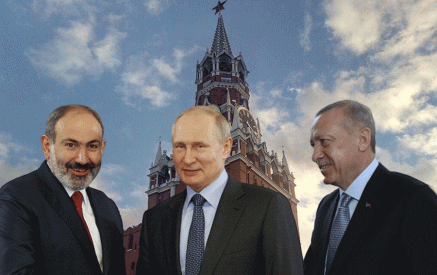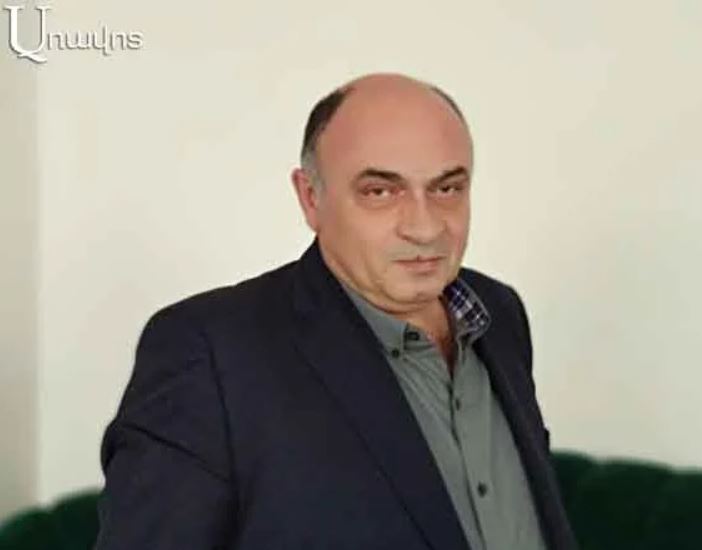Aravot interviewed political scientist Aghasi Yenokyan.
– Azerbaijan has offered Armenia five points to lay the groundwork for normalizing relations. According to official Baku, these points are mutual recognition of sovereignty and territorial integrity by the two countries, confirmation that the parties have no territorial claims to each other, legal stipulation that they will not have such claims in the future (the parties should not pose a threat to each other’s security), delimitation and demarcation, establishment of diplomatic relations, unblocking, and implementation of joint programs. If we translate this from diplomatic language, what are these points about?
– These are more principles by which all countries establish relations with each other. Were it not for the mention of delimitation, you would not have guessed that it was about neighbors. Or the point about unblocking. One should not even think that it is about relations with Azerbaijan, as if the agreement with Congo or Micronesia is being discussed, as if it is not the same Azerbaijan that is now tens of kilometers deeper in Armenia, as if it is not the same Azerbaijan, because of which almost every day we have new casualties and losses. As long as there are no details, for example, on what borders delimitation or blockade schedule is offered, or where the “corridor” demanded by Turkey-Azerbaijan is hidden, nothing significant can be said about all this, except the one-most important one. The Nagorno-Karabakh problem is not here.
Read also
Recognizing the territorial integrity of Azerbaijan, Armenia automatically recognizes Artsakh as part of Azerbaijan. Baku’s calculation is very simple. After the end of the war, Armenia avoided talking about Artsakh, discussing its status and, most importantly, its security. Azerbaijan, of course, assumes that this issue is no longer related to Armenia and can consider this issue resolved when normalizing relations with Armenia.
There are also other dangerous circumstances. Azerbaijan has intensified discussions on “peace” at a time when Russia, being occupied with Ukraine, has minimal political and diplomatic interference in the processes of our region. Moreover, instead Turkey has become more active and is conducting a process of normalization of relations with Azerbaijan. In other words, these two processes obviously have the same origin, and naturally, they have mutually agreed with each other to snatch the maximum from Armenia in the absence of Moscow.
It should be noted that along with the “peace” talks, Azerbaijan has intensified armed provocations and the accumulation of armed forces on the borders of Armenia and Artsakh. In other words, in addition to bilateral diplomatic pressure, the “peace” talks are taking place under conditions of armed blackmail. All this suggests that there are very dangerous specifics behind the “neutral” formulations.
– Official Yerevan did not express an opinion on Azerbaijan’s proposals. The RA MFA stated that it had applied to the OSCE Minsk Group to organize negotiations for a peace agreement. Can this statement be considered a positive response to Baku’s proposals?
– On the one hand, this can be considered as incompetence, total apathy in presenting and advancing one’s own diplomatic approaches. Even before such an application, no attempt is made to discuss these issues with the Armenian society and political forces.
On the other hand, it seems that the Armenian authorities are not too sad that Russia, through whose efforts the ceasefire was established and through whose means peace (which Azerbaijan is negotiating) is now being excluded from the talks. This can also be considered as diplomatic agility, because if Moscow does not like the negotiated “peace,” it can allow that peace to be violated at any moment.
Nelly GRIGORYAN






















































